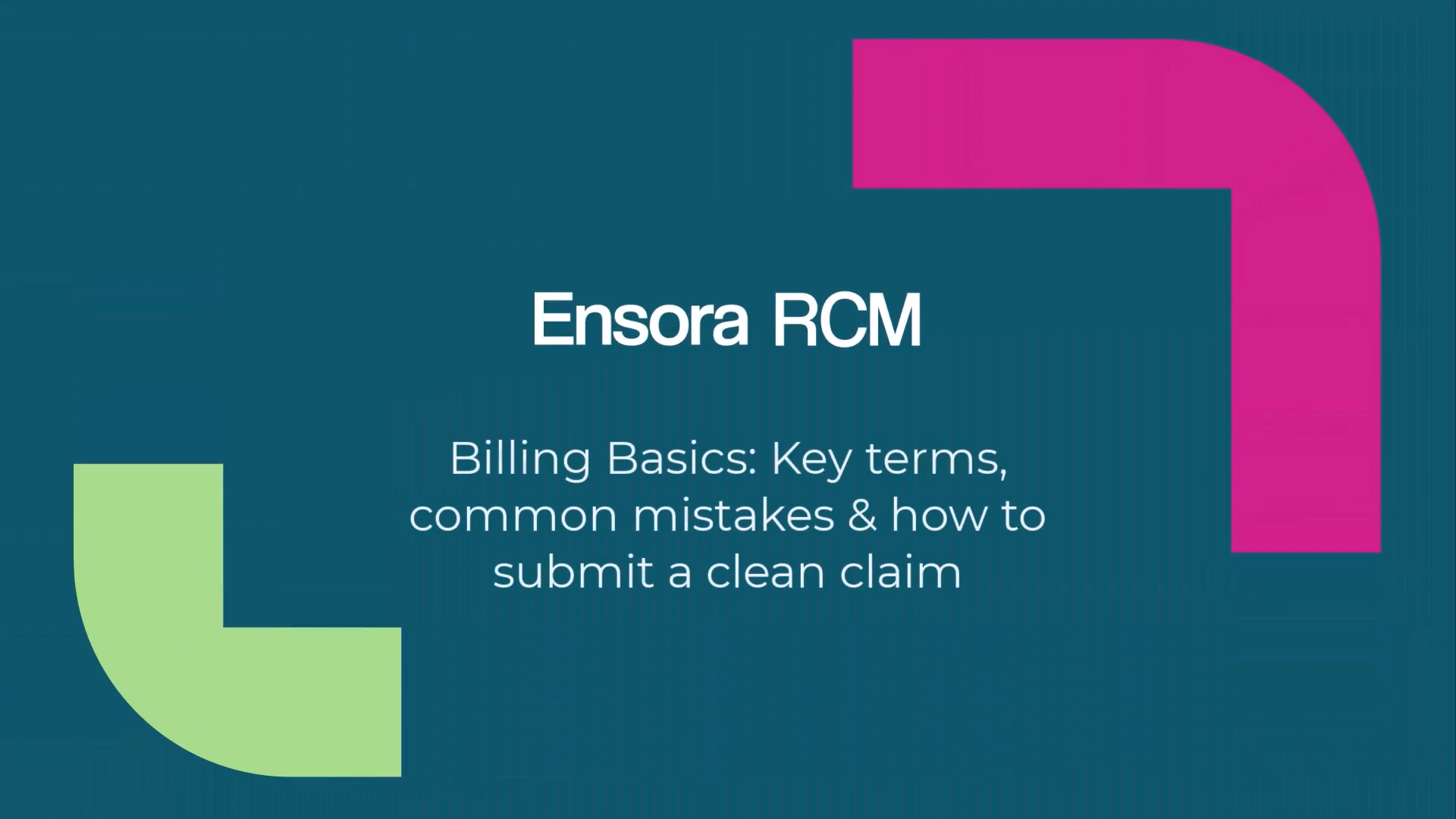How to choose the right RCM support for your therapy practice

Revenue cycle management (RCM) has been a vital part of healthcare for decades, evolving from manual billing to today’s tech-driven systems. It’s a proven method for managing the complex journey after client care to payment. Healthcare organizations and practices have long depended on RCM to maintain financial health and cash flow, regardless of industry changes.
It’s no secret that therapy practices often find billing and revenue collection overwhelming. Modern RCM services can alleviate this burden, streamline processes, and ensure you collect what you’ve earned. But with many RCM providers available, how do you choose the best fit for your practice? This blog explains exactly what to look for. Let’s dive in!
What is RCM?
Before diving into what to look for in an RCM provider, let’s quickly cover the basics. Revenue cycle management is just a fancy way of describing the process of getting paid for the services you provide. It covers everything from the moment a client schedules an appointment to the time the payment hits your bank account.
RCM can be broken down into three main stages:
- Pre-service: This includes scheduling, verifying insurance benefits, and getting any necessary pre-authorizations.
- Time of service: This is when you’re seeing clients, documenting progress notes, and selecting the right billing codes.
- Post-service: This is when insurance claims are submitted, payments are posted, and any denials or rejections are managed.
The uncomfortable truth is that up to 20% of revenue is often left uncollected in healthcare practices. That’s a lot of money left on the table. A good RCM provider can help you close that gap and ensure you’re getting paid for the important work you do.
Look for a seamless implementation process
Switching to an RCM service shouldn’t feel like a headache. A great provider will make the transition as smooth as possible, so you can focus on your clients instead of worrying about billing logistics. Here’s what to look for:
- Thorough database review: Your RCM provider should start by reviewing your current billing setup to ensure everything is accurate. This includes checking payer setups and making sure claims are clean and ready to go.
- Hands-on training: You and your team should feel confident using your practice management solution to understand what’s happening with your claims. Look for an RCM provider that offers training and support on how to navigate your practice management solution and effectively utilize its reporting capabilities to stay on top of your practice finances.
- Dedicated onboarding support: A good provider will assign someone to guide you through the entire process. This “white-glove” approach ensures you’re not left figuring things out on your own.
- Proactive problem-solving: During implementation, your provider should catch and fix potential issues, like outdated payer IDs or incorrect claim submissions, before they become bigger problems.
The right RCM provider will set you up for success from day one, giving you peace of mind that your billing is in good hands.
Prioritize strong account management support
Once you’re up and running, you’ll want an RCM provider that takes the day-to-day billing tasks off your plate. This is where the RCM provider’s account management team comes in. Here’s what they should handle:
- Claim submission and error correction: Your provider should take care of submitting claims, fixing rejections, and managing denials. This ensures you’re not wasting time chasing down payments.
- Automation for payment posting: Look for a provider that sets up ERA (Electronic Remittance Advice) so payments are posted automatically. This keeps your records up to date without manual effort.
- Collaborative problem-solving: Sometimes, your input will be needed—like updating insurance information or reviewing coding. A good account manager will work closely with you to resolve these issues quickly and efficiently.
- Time-saving benefits: The right provider will handle the heavy lifting, freeing you up to focus on what matters most: your clients.
Think of the RCM account management team as an extension of your practice. They should be there to support you, not add more work to your plate.
Ensure ongoing performance monitoring and support
Billing isn’t a “set it and forget it” process. To keep things running smoothly, you’ll need an RCM provider that offers ongoing performance monitoring and support. Here’s what to look for:
- Regular performance reviews: Your RCM provider should meet with you monthly to review key metrics like accounts receivable (AR) over 90 days and net collection rates. This helps you stay on top of your financial health.
- Proactive issue resolution: A good provider will catch potential problems—like recurring claim denials—early and work with you to address them before they escalate.
- Actionable insights: Look for a provider that offers data-driven recommendations to improve your billing processes and boost revenue collection.
- Open communication: Ideally, you should have a designated performance manager that you can turn to with questions or concerns. They should work closely with you to address issues and help your practice thrive.
The right RCM provider will act as a partner in your success, not just a service you use.
Finding the right fit for your practice
Choosing an RCM provider is a big decision, but it doesn’t have to be overwhelming. By prioritizing seamless implementation, strong account management, and ongoing performance support, you can find a partner that sets your practice up for long-term success.
A final note: consider pricing. Avoid providers with suspiciously low rates or no monthly minimums; they often lack the resources to support you. Also, steer clear of hourly rates, which can inflate costs for complex claims. A transparent, percentage-based model with a reasonable monthly minimum is best, ensuring dedicated resources and a true partnership.
If you’re ready to explore how the right RCM support can make a difference for your practice, consider a free demo with Ensora Health. We can learn about your current processes, offer advice, and help you see where your practice stands.






